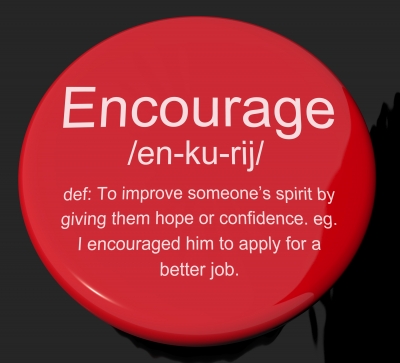You can possess all the necessary knowledge of how to accomplish a task and not follow through to completion. Even with the right knowledge we often need is some encouragement. Sometimes we need just a little and other times we need a whole lot.
We may hold the need for encouragement in common. However, each of us responds differently to different kinds of encouragement. Different circumstances, such as training, family, or work can call for different kinds of encouragement. Words, gifts, awards, smiles, quality time, express gratitude and confidence are just a few tools we can use to encourage others.
Perhaps I can speak best from my own experience. What have I found most encouraging over the years? [NOTE: I am not real comfortable sharing this kind of info in such a public space.]
Truthful, sincere acknowledgment of something I have done or said that has made a difference.
For me it is important that the words, award or whatever the acknowledgement, must be objectively truthful. Platitudes or untrue statements do little to nothing to encourage me.
We should try and understand how those in our own lives receive and respond to encouragement. A few encouragement suggestions:
- Experiment – What encourages you may not encourage someone else.
- Smile more often.
- Listen. Really listen.
- Give thanks – expressed in words, deeds, and acknowledgement. Be specific! Even when the outcome is not what you or they may desire, give thanks for their quality efforts.
- Express your confidence in someone’s ability to accomplish whatever they are facing. Sincerity is key!
Perhaps our expression of gratitude goes along with encouraging others. What do you think? What encourages you? (Leave a comment–link is on the top of the post.)
Further reading:
“The Quiet Power of Encouragement”
http://www.psychologytoday.com/blog/light-and-shadow/201311/the-quiet-power-encouragement


